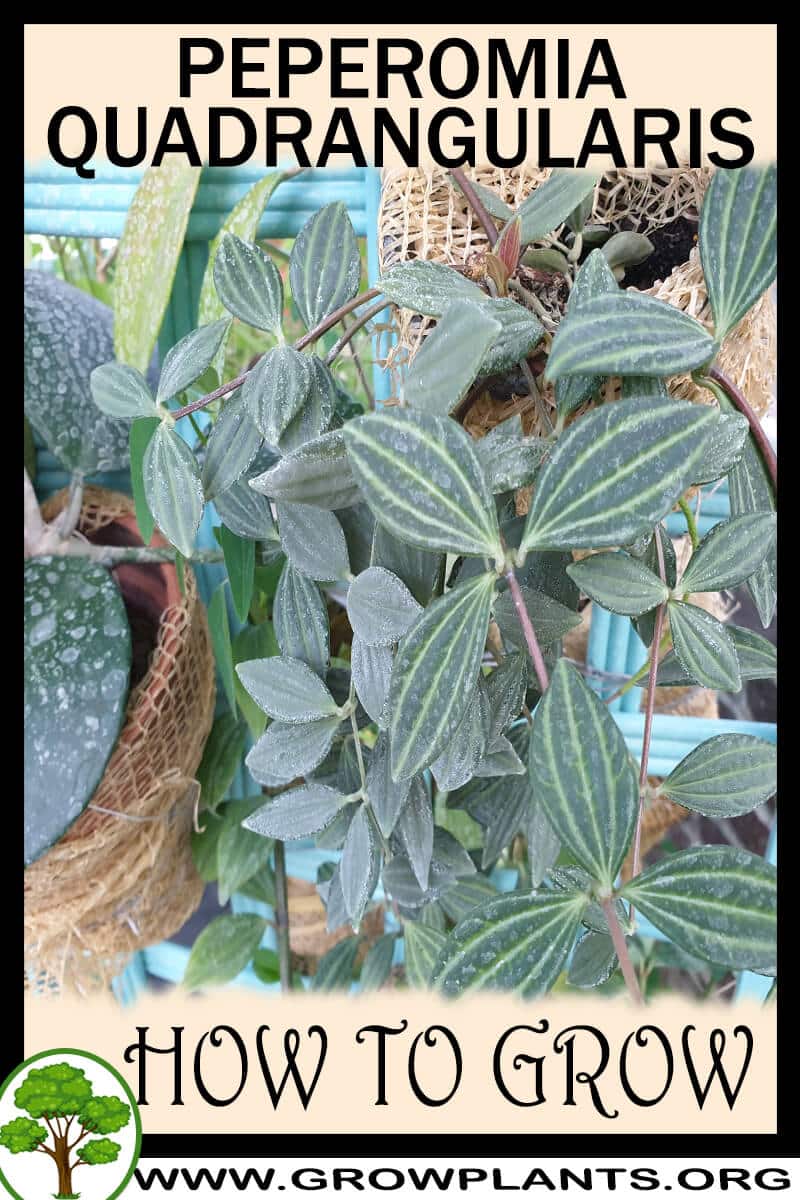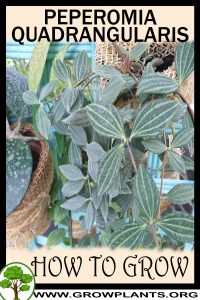
Peperomia quadrangularis grow and care – subshrub succulent of the genus Peperomia also known as Emerald ripple plant, Peperomia quadrangularis perennial evergreen used as ornamental plant mostly for the leaves and can be for the water, grow in tropics, mediterranean, subtropical climate or indoor as houseplant and grow in hardiness zone 11b+ and in the right care in hardiness zone 11a+.
Leaves color green variegate stripes in lighter green, can be with prominent vein in elliptic.
Peperomia quadrangularis flower
Flower color white the shape like ice-pop sometimes looks like boot.
Peperomia quadrangularis for sale – Seeds or Plants to Buy
How to grow Peperomia quadrangularis growing and care:
Well-drained soil, moist soil, better more than 16C (60F) optimal temperature 18-26C (64-80F), better to use rain water or clean water, rich soil, humidity, ph 6 and can be little bit lower
How to care:
Add fertilize at least once a year, keep the soil moist, prune once a year
What is the best way to start growing?
Plant / Seed / Vegetative reproduction (propagate by leaves or stems)
How to propagate:
Propagation by cuttings possible to start by stem or leaf, cut the leaf or the stem, the leaf better to cut with the hand take care not to brake, wait few days in the shade, until the tissue heal, after this put it in the soil and let it grow, give the same condition as fully mature plant.
Is it necessary to use vegetative reproduction?
Yes for getting the same cultivar
Difficulties or problems when growing:
?
Planting season:
Spring in hardiness zone 10a, spring to summer hardiness zone 10b, spring to autumn in hardiness zone 11, all year in hardiness zone 12+
Pests and diseases:
Aphids, mealy bugs, mites, whiteflies
Pruning season:
All year
How to prune:
Dead leaves and bloom stem
Size of the plant:
10-25 cm, 4-10 inches
Growth speed in optimal condition:
Slow growing
Water requirement:
Small amount of water, but keep the soil moist and do not overwater, better to use rain water or clean water
Light conditions in optimal condition for growing:
Full Shade (a lot of light)
Is it possible to grow indoor as houseplant?
Yes, grow well indoor
How to care indoor as houseplant:
Need to check that the plant not affect by dry air of warming and cooling machines, light, need to keep the soil moist and humidity, also to fertilize at least once a year
Growing is also possible in a pot / planter /flowerpot / containers:
Yes, start with container that bigger than the plant at least 30-50%, pot size 10-15L (2.6-4 gallons), need to switch the soil once in a few years by new soil, better to do in the winter, wash the soil from the roots and cut the root and prune the plant, use potting mix or peat soil with perlite and mix it with hummus and organic matter, use chopped mulch to keep the soil moist, let the bottom of the pot fill in water but dry in the same day.
Blooming information
Bloom season:
Spring / Summer
General information about the flower
White flower in shape like ice-pop
How to grow Peperomia quadrangularis from seeds
Sowing requirement:
Peat soil (sterile) (ph 6), moist soil with high humidity (in order to get high humidity better to keep the pot in plastic bag or plastic box) temperature around 25C (77F) and better in the night 22C (68F), a lot of light
Saving and care seeds until sowing:
Dry and dark location
Sowing season:
Spring / Summer / Autumn
How to plant:
Better to plant it in close box or something that will be with high humidity
Planting spacing:
Separate pots or to transplant 2*3cm (1*1.5 inch), better to grow
Depth of Sowing:
Better to put in the seeds on the soil
Conditions for seeds germinate:
Different temperature in the day of the night, high humidity
Watering requires for Seeds:
Average amount of water
Germination time:
4-8 weeks
Condition of seedling:
High humidity and moist soil and around 25C (77)
Scientific name:
Peperomia quadrangularis
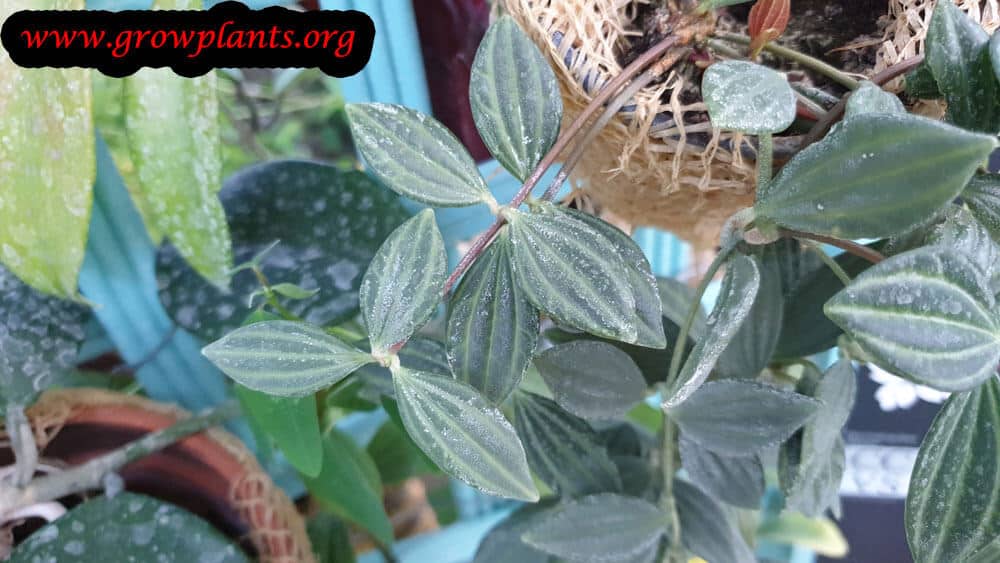
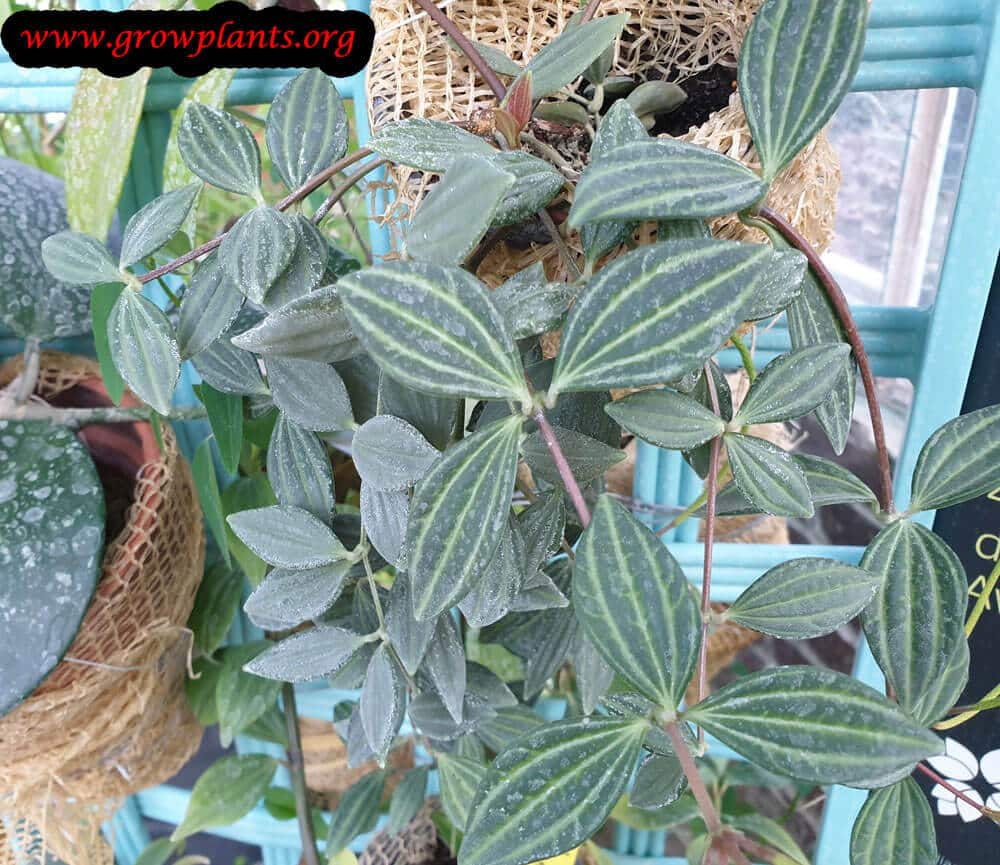
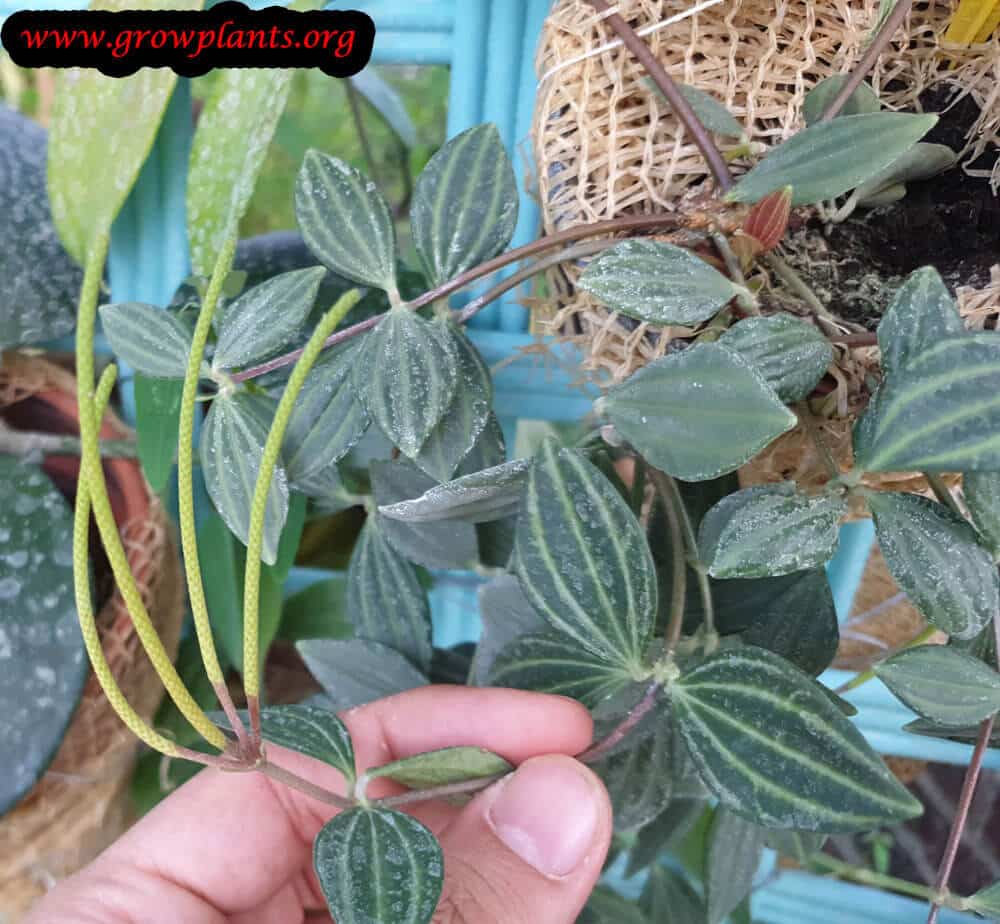
Categories
| Blooming Seasons |
|
|---|---|
| Flower colors |
|
| Climate |
|
| Ornamental parts |
|
| Plant life-form |
|
| Plant Uses |
|
| Planting Season |
|
| Plants sun exposure |
|
| Watering plants |
|
| Hardiness zone |
|


